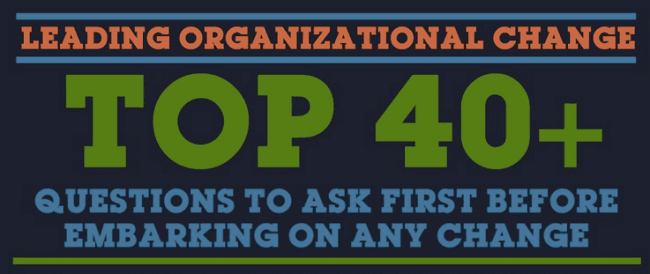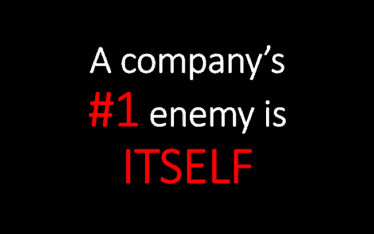Managing change in today’s organizations is not getting any easier
Managing change in today’s organizations is not getting any easier. However, doing it well is the new imperative.
For companies to survive and strive in today’s competitive environment, they will need to change quickly and successfully. Managing change is now a core competence that can no longer be considered a discretionary “nice to have”.
Yet most organizations are falling short in the race to adapt. The accelerating pace of change coupled with increasing uncertainty and complexity has pushed up this skills gap to what is now a major area of concern.
How successful are organizations at implementing change?
An IBM study reports most CEOs considering themselves and their organizations largely ineffective at bringing about change. The change practitioners themselves reported the following change program success rates:
- 41% – Fully met objectives
- 44% – Missed at least one objective
- 15% – Missed all objectives or aborted
In all, 59% of change initiatives failed to meet their objectives. Another sobering thought is the stark contrast between those organizations getting change management right and those that are struggling.
The top 20% of organizations, the study reveals, are successful 80% of the time. Conversely, the bottom 20% of organizations only manage to achieve their change objectives 8% of the time. The top 20% of companies are ten times more likely to lead a successful change initiative than the bottom 20%.
Clearly, underachieving organizations can draw important lessons from the top achievers. What are the barriers to successful change and what are the key success factors that poor performers can leverage to their competitive advantage? The IBM study provides valuable insights into what poorly performing organizations can do to emulate the success of their better performing competitors. What are these lessons?
Key barriers to successful change
Through their research study, IBM revealed these key barriers to successful change:
- 58% – Changing mindsets and attitudes
- 49% – Corporate culture
- 35% – Complexity is underestimated
- 33% – Shortage of resources
- 32% – Lack of commitment of higher management
- 20% – Lack of change know how
- 18% – Lack of transparency because of missing or wrong information
- 16% – Lack of motivation of involved employees
- 15% – Change of process
- 12% – Change of IT systems
- 8% – Technology barriers
Key ingredients for successful change
Note how people factors account for the top three challenges and for four out of the top five. Getting the “soft” stuff right turns out harder to do than getting the traditional “hard” stuff, such as resources and technology, correctly aligned.
What was once considered the unimportant “soft and fuzzy” aspect of organizational life turns out to be what makes or breaks change projects. This picture of what enables successful change is highlighted again in IBM’s uncovering of the key success factors. These key ingredients for successful change, as revealed by the top performers in the study, are:
- 92% – Top management sponsorship
- 72% – Employee involvement
- 70% – Honest and timely communication
- 65% – Corporate culture that motivates and promotes change
- 55% – Change agents (pioneers of change)
- 48% – Change supported by culture
- 38% – Efficient training programs
- 36% – Adjustment of performance measures
- 33% – Efficient organization structure
- 19% – Monetary and non-monetary incentives
People matter the most
Once again, tuning in to the “soft” factors makes up for the top six key aspects for successful change. The central learning from: That people matter the most.
Short URL & Title:
Managing change has to be a core competence — https://www.torbenrick.eu/t/r/mbv
Share it:
If you enjoyed this article, please take 5 seconds to share it on your social network. Thanks!










About The Author
Torben Rick
Experienced senior executive, both at a strategic and operational level, with strong track record in developing, driving and managing business improvement, development and change management. International experience from management positions in Denmark, Germany, Switzerland and United Kingdom